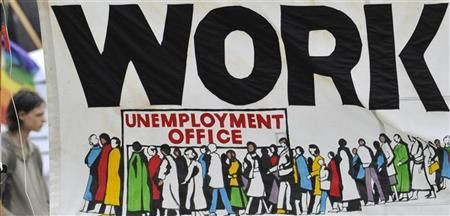Unemployment Linked to Adverse Changes in Personality

Unemployment has several socioeconomic and psychological impacts. It can make an individual less open, conscientious, and agreeable, according to a recent study by the American Psychological Association. These negative implications on personality may make it harder for the unemployed to find work.
Findings in this research may differ from the notion that people have a fixed personality and also show the effect of external influence on basic personality. Christopher J. Boyce, research fellow at the University of Stirling in the United Kingdom, and his associates analysed a subgroup from the German Socio-Economic Panel Study, a primary data reference used in a number of research. The researchers focused on 6,769 participants, who took a personality assessment twice from 2006-2009. Around 3.1 percent of the total participants were unemployed throughout the four-year duration of the study, while 3.7 percent were jobless for several months but were able to find employment later.
The team referred to the basic five personality traits in evaluating the participants—agreeableness, conscientiousness, extraversion, neuroticism, and openness. They were able to determine whether or not unemployment promoted changes in either of these traits. The duration of joblessness, gender difference, and reemployment were factors considered in these changes. Results show that men had higher levels of agreeableness during the first two years of unemployment compared to employed men. However, this started to decline thereafter. As for the women, they became less agreeable with every year of joblessness.
The period of having no job correlates with reduction in conscientiousness in men. On the other hand, jobless women were more conscientious during the start and later stage of unemployment, although there was a decline during the middle part. Regaining the trait despite lack of employment was attributed to the tendency of women to pursue other activities that make them still feel productive. With regards to openness, levels were the same in men during the first year but gradually declined with sustained unemployment. Openness in unemployed women plummeted during the second and third years but returned to normal levels on the fourth.
Boyce said that this study, which was published in the Journal of Applied Psychology, shows the tendency of society to stigmatise the unemployed after adverse changes in personality traits. This could lead to a make it more difficult for unemployed people to compete in the job market. The author also gives emphasis to the role of state policies in generating employment opportunities and support for those unemployed to sustain both the economy and development of the workers.
To send feedback about the content, email: jm_panganiban@hotmail.com





















